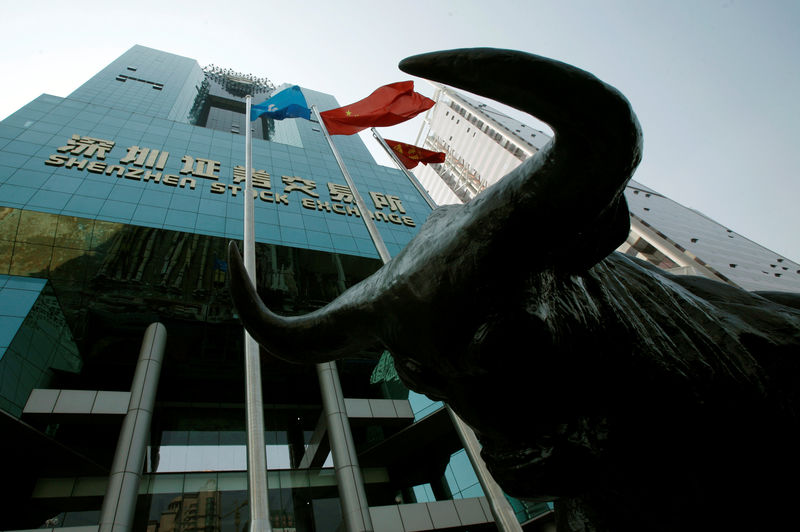This post was originally published on this site

Investing.com– Asian stocks surged on Friday tracking an overnight rebound on Wall Street, although traders remained wary of a reversal in gains as U.S. inflation data pointed to more hawkish moves by the Federal Reserve.
Hong Kong’s Hang Seng index and Japan’s Nikkei 225 were the best performers for the day, rising more than 3% each as they bounced back from sharp losses logged earlier in the week.
But the Hang Seng index was still set to lose nearly 5% this week, following steep declines in major technology stocks on fears of new U.S. curbs on Chinese chip supplies.
Chinese stocks also recovered from recent losses, with the Shanghai Shenzhen CSI 300 and Shanghai Composite indexes adding 2.2% and 1.7%, respectively. But both indexes were set to end the week lower, as major semiconductor-exposed stocks logged heavy losses after the U.S. blocked their access to key technology.
Concerns over a COVID outbreak in Shanghai also weighed on sentiment, as markets feared renewed lockdown measures in the country’s financial capital.
Data on Friday also showed that while Chinese CPI inflation grew as expected, factory-gate inflation remained subdued in September, indicating continued weakness in the manufacturing sector.
Other tech-heavy bourses in Asia also bounced back from sharp losses this week. The Taiwan Weighted Index jumped 2.7%, while South Korea’s KOSPI added 2.3%. But both indexes were still set to end the week lower, with the Taiwan index down nearly 4%.
Taiwan Semiconductor Manufacturing Co (TW:2330), the biggest chipmaker in the world, slumped over 9% this week on fears of curbs on its shipments to China. The firm also gave cautious signals on its future prospects, while logging a large jump in its third-quarter profit.
Regional stocks tracked an overnight rally in Wall Street, which benefited from technical buying of stocks reaching over two-year lows. Hotter-than-expected U.S. CPI inflation data initially triggered steep losses in stock markets, which were reversed sharply after Wall Street indexes fell to a certain threshold.
Investors were also betting that after Thursday’s CPI surprise, inflation in the U.S. had potentially peaked around 8%, and would likely trend lower as the Fed kept raising interest rates.
But the interest rate hikes are expected to weigh on stock markets, given that they curb liquidity and discount the future earnings of most sectors. A series of rate hikes by the Fed triggered steep losses in global stock markets this year.
Markets are now pricing in a nearly 100% chance that the Fed will raise rates by 75 basis points in November, its third such hike this year.




